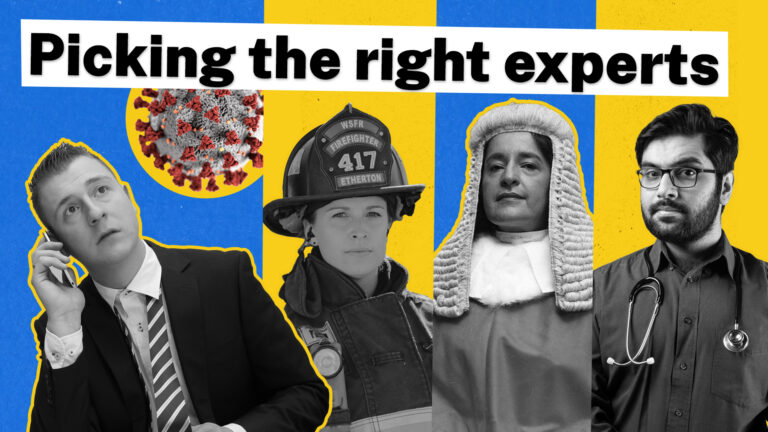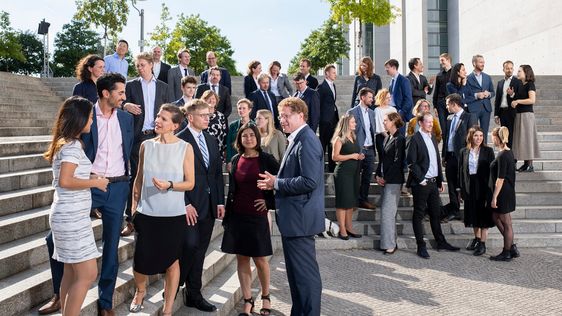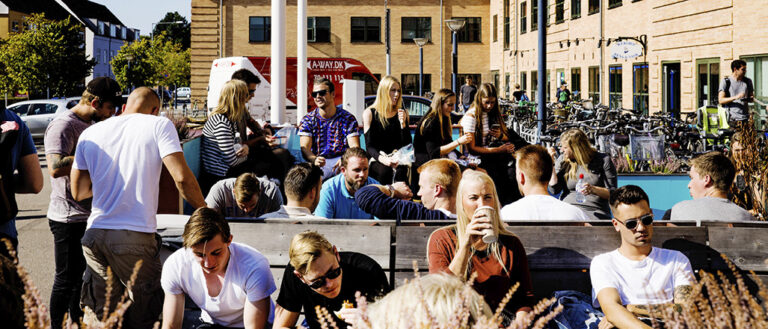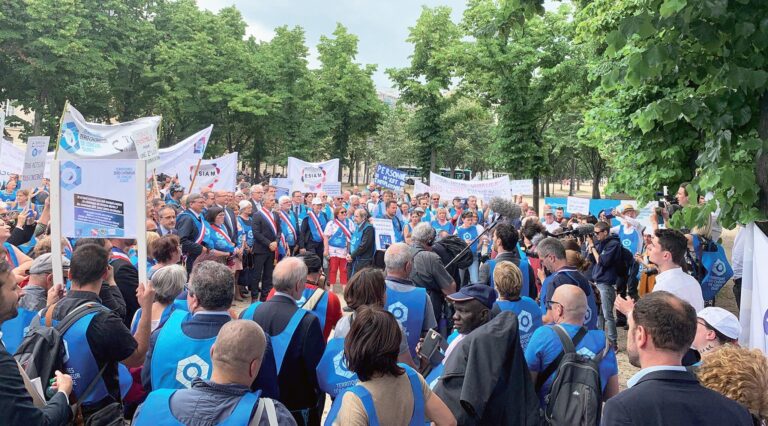
Curating experts insights to tackle Covid-19 with Smarter Crowdsourcing
A new method to attract diverse ideas from global experts and rapidly develop actionable proposals.

Quick facts

Read this if you
Method
Policy making steps
Contributor

Deciding how Europe’s largest economy should operate its energy transition is no easy feat.
Because energy matters to just about anything we do, it’s a policy field in which a vast array of interests and lobbyists defend their viewpoint, from utilities and grid operators to tech investors, consumer groups and environmental NGOs.
From 2000 onwards, Germany’s energy sector saw itself upended as new players, rules, business and pricing models appeared, all playing their part in a vigorous shake up of the old system.
And this only muddied the way forward, leading to fractured, uncoordinated dialogue between interest groups who largely ignored the interactions between the different parts of the power system – physically as well as economically.
What was missing was a comprehensive view of the overall transition process, taking into account the interdependencies of different subsystems, all the different interests involved and a structured debate about possible options as well as their potential consequences. No single actor in the energy policy landscape had the capacity at that time to exert such a role.
In this context of fractured policy dialogue, Stiftung Mercator, a German philanthropic foundation, created the “Agora Energiewende” in partnership with the European Climate Foundation (ECF).
The Agora’s aim was to provide a space for stakeholders to hold honest discussions on how best to proceed with Germany’s energy transition.
One guiding insight: effective change comes from within. Co-ownership fosters trust in the process, which itself spreads acceptance among thought leaders’ respective communities.
For this to work, stakeholders need to trust the process, and perceive it as an opportunity to learn from each other. Participating in the Agora means you can sharpen your understanding on a key issue, and get things moving by producing policy.
To help hold meaningful conversations, stakeholders are not asked to take position publicly once solutions are defined. Beyond a fixation on finding consensus, which all too often ends up being the lowest common denominator, Agoras also focus on feeding the debate with the best available expert analysis, so as to narrow their options down to feasible and impactful solutions.
In the case of Germany’s energy transition, two risks were to be avoided: that interest groups would talk past each other and that antagonistic positions would block governmental decisions.
The Agora process takes a 2 part form:
1. The Council of Agora: a place to discuss and learn
The Council acts as the principal room for stakeholders to meet and discuss. Its only function is to be a systematic peer-learning and capacity-building unit that identifies convergences, reduces the confusion surrounding any given challenge and makes way for feasible strategies with a high degree of stakeholder buy-in. The council does not have any public function, and is not expected to release any position papers or recommendations.
Council members are selected by the director and the shareholders (Mercator and the European Climate Foundation) according both to their position and capacity to act as an opinion leader in their professional context, and to their willingness to engage in a trustworthy and candid manner with other experts. The council of Agora Energiewende comprises (deputy) ministers, CEOs, leaders from NGOs and associations.
2. Internal think tank: technical input and media
In parallel, a team of technical experts functions as an “internal think tank” and organizes all matters for the council meetings. The team has to provide top-quality analysis and leadership that serves as input for the council as well as for public debates. The think tank is also Agora’s public face and organizer: It produces all of Agora’s publications which are made publicly available and it manages events and media initiatives to inform public debates on energy matters.
Co-creation: a collaborative process that integrates diverse stakeholder groups from the beginning of a project to its end, to foster a sense of ownership. This is the policy equivalent of the IKEA effect where customers place a greater value on products they have helped to build.
Co creation has another advantage: it serves to increase the credibility of the results as well as their reach, especially when different multipliers speak highly of the study in their respective contexts.
Stakeholder alignment: getting people to act together although they disagree. Alignment is more likely when change is co-created and co-owned. When it’s built together.
Evidence-based policymaking: the Agora both widens the solution space and helps deliberate about various interests. It illustrates how in such a space, even on issues such as energy policy where interests and ideologies are very strong, everyone knows something, but nobody knows everything.
Inspiring stories, key principles, practical do’s and don’ts
In open acess thanks to the Porticus Foundation
For policy makers, researchers, activists and practitioners of collective intelligence

Related resources

A new method to attract diverse ideas from global experts and rapidly develop actionable proposals.

How Slagelse used AI to gather citizen insights on health and well-being to craft local policy

Dreaming, remembering, scaling and innovating boldly to spread good ideas
Every 2 weeks, you’ll get: